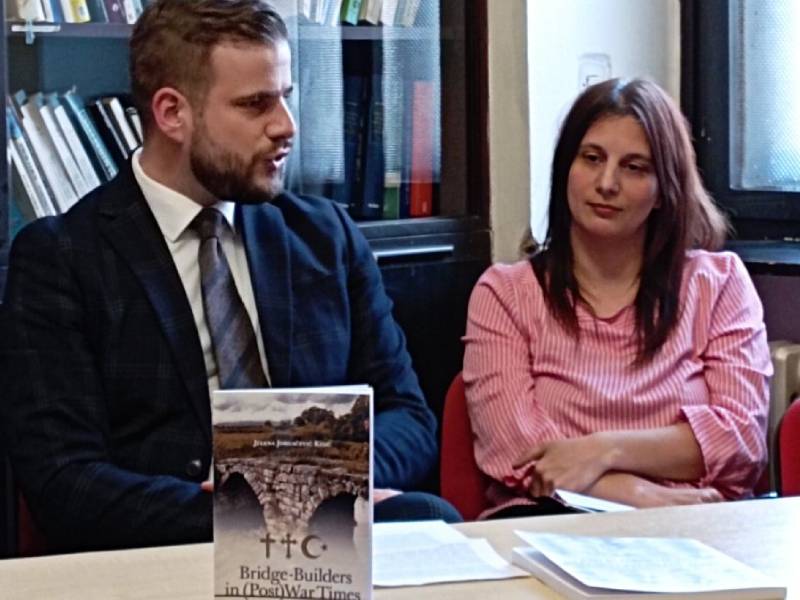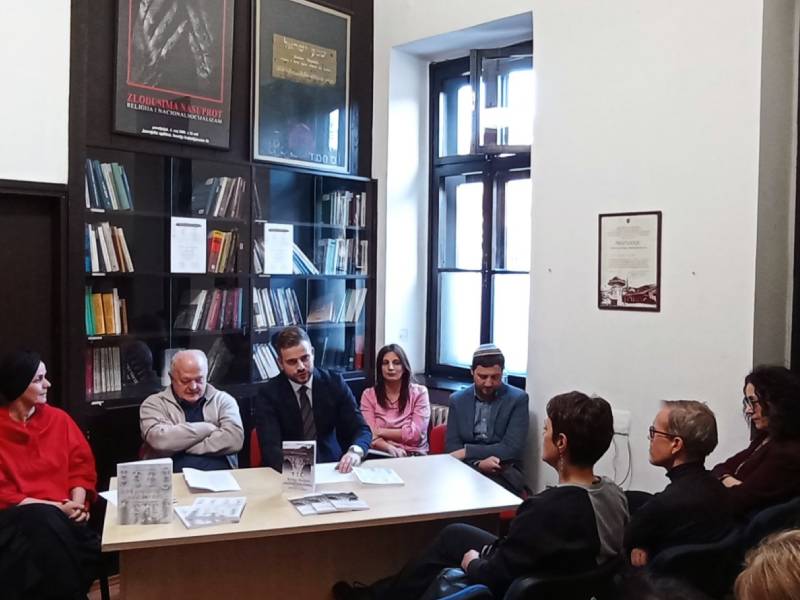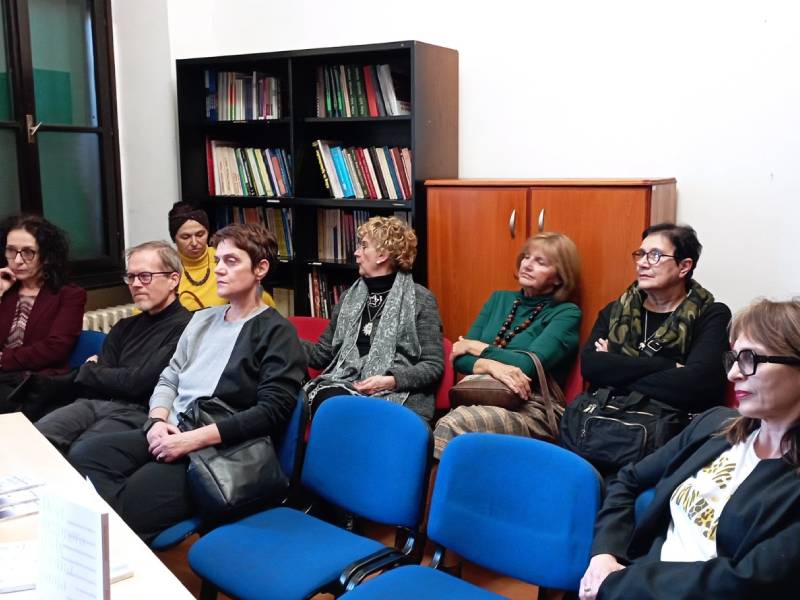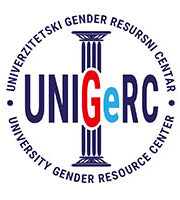In the premises of the International Multireligious and Intercultural Center IMIC Zajedno in Sarajevo, on March 29, 2023. In 2008, the promotion of the English edition of the book “Bridge-Builders in (Post)WarTimes Guidelines on Interreligious Dialogue” was held, which was supported by KAICIID from Portugal. The author of the book is Jelena Jorgačević Kisić, a journalist from the Belgrade weekly Vreme. Jelena is a PhD student at the University of Regensburg. She has won several national journalism awards for her articles. She is the president of the non-governmental organization Forum for Religion, Media and Culture of Remembrance.
The idea of this book, as the author points out, is to show how true faith, according to one of the interlocutors, is a faith that unites people. The promotion was moderated by Nikola Vučić, a journalist from N1 TV, and the promoters were: Fr. Ivan Šarčević, Prof. Ph.D. Zilka Spahić Šiljak, hazan of the Sarajevo synagogue, Igor Kožemjakin. After the opening words of the author, the promoters reflected on their first impressions after reading the book, as well as on anecdotes experienced with some of the religious representatives, presented in nine chapters.
The promoters clarified the need for inter-religious dialogue, so Friar Šarčević points out: “Most of the interviewed religious representatives speak from the perspective of minorities. That’s what our specialty is here. It shows that people who feel they are minorities are much more committed to dialogue than those who are in the majority. When it comes to the majority, then they consider the dialogue, I dare say, as a truncation of their identity, that it is a heresy. (…) Three people in the book especially talk about forgiveness. They clearly say that it should start from the victims. Up to one interlocutor talks about equating nation and religion. He would thank Jelena for choosing these people. Jelena also stated well, there are two fundamental attitudes towards forgiveness: no one can forgive on behalf of others and forgive without remorse. How to talk about forgiveness if you don’t forgive the hardest things. Those are the dilemmas now, what to decide?”
During her professional work, activism, prof. Spahić Šiljak contributed to the social community and informed the public about women peacemakers. During her presentation, she paraphrased the words of Fr. Marko Oršolić, the founder of the IMIC Together Center and one of the interviewees: “I can summarize the first things I learned from Fr. Marko twenty years ago, when we started working together: where we are a minority, the priority is interreligious dialogue and that presses us existentially. And where we are the majority, it is considered treason, heresy. I believe that precisely because of their position in the socio-political reality, the minorities are more oriented towards dialogue and that they have worked harder to build peace in these areas, which is shown through these nine stories.”
Minorities are often discriminated against in society. However, the willingness to forgive is one step towards a healthy interreligious dialogue. Forgiveness and moral responsibilities were spoken by Mr. Kožemjakin: “I believe that the readiness to forgive can come the moment that someone forgives. Now we come to the domain of responsibility. Responsibility, when we talk about criminal responsibility, cannot be collective, it can be individual, but when we talk about the domain of moral responsibility, we enter the domain where there is a place for the collective. If we take the Holocaust as an example, that is. Post-holocaust, whether among the perpetrators of the Holocaust, or among the survivors and their descendants, we will see that there are two completely different views on the concept of forgiveness. Dialogue comes from below, and without such personalities as those from the book, it is difficult to realize it.”
Towards the end, the author emphasized that many things are not taken for granted and that we should speak clearly and factually to the general public. “Sometimes it seems to me that we often do not understand what is something that is generally known or unknown to the general public. Some things we think everyone needs to know, they don’t. I think that sometimes it is useful to talk in the general public about things that we take for granted, who are in this topic. As for the interlocutors, they were not burdened by the structure of the interview. I let them choose what they consider important. Even in the matter of dealing with the past, there are different answers. As for the dialogue, it seems to me that it sounds like a platitude. There is resistance. I wanted people who authentically live it to be heard,” said author Jorgačević Kisić.
The conclusion of this promotion was that the only real man is a free man. Also, through interreligious dialogue, we can discuss and come to the topic of forgiveness, but without it, everything remains on coexistence – we live next to each other, but not with each other. This activity was implemented as part of the project “Introduction of gender-aware policies in higher education – UNIGEM” implemented by the TPO Foundation and financed by the British Embassy Sarajevo.






